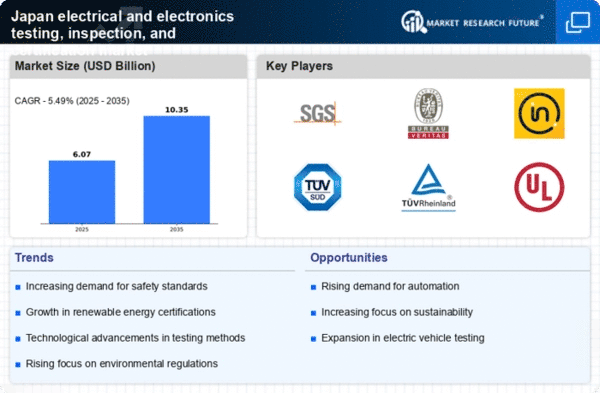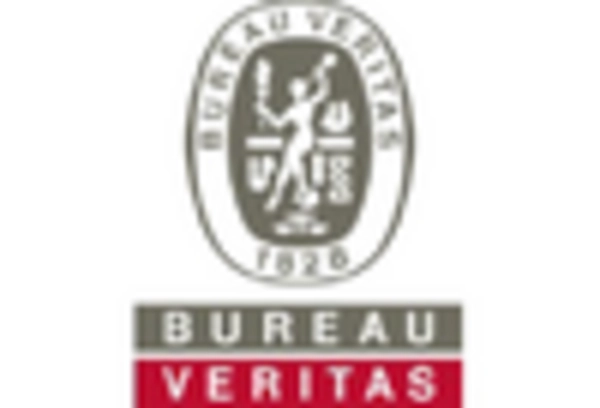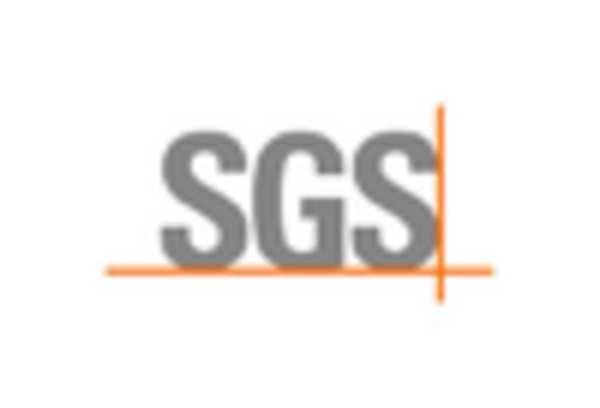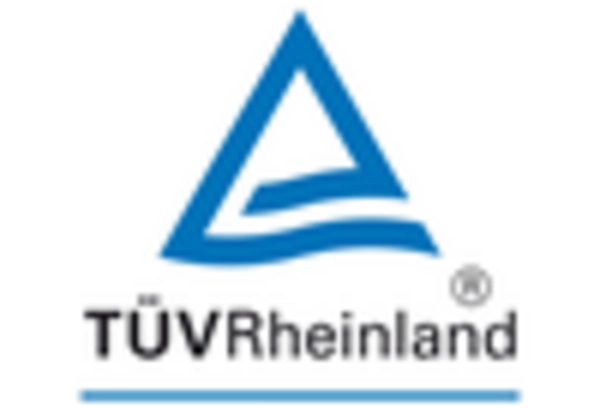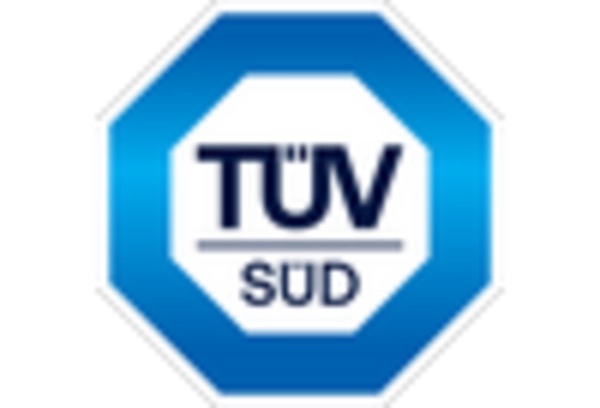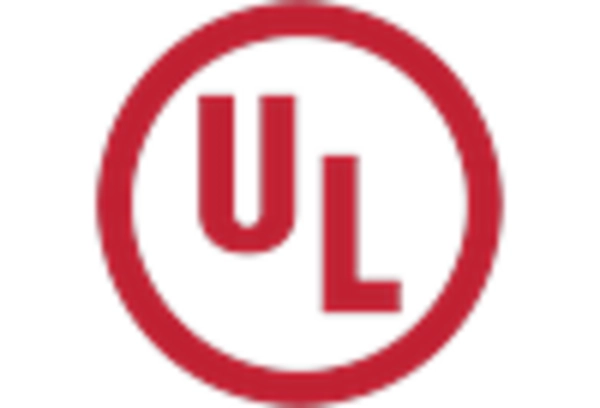Focus on Quality Assurance
Quality assurance remains a critical driver for the electrical electronics-testing-inspection-certification market in Japan. As industries strive to enhance product reliability and customer satisfaction, the emphasis on quality control processes has intensified. In sectors such as automotive and aerospace, where safety is paramount, rigorous testing and certification are essential. The Japanese automotive industry, valued at over $100 billion, is particularly reliant on stringent quality assurance measures to maintain its reputation for excellence. This focus on quality not only ensures compliance with regulatory standards but also fosters consumer trust. Consequently, companies are increasingly investing in testing and certification services to uphold their quality commitments, thereby driving growth in the electrical electronics-testing-inspection-certification market. The interplay between quality assurance and market competitiveness is likely to shape the future landscape of this industry.
Increased Investment in R&D
Increased investment in research and development (R&D) is a notable driver for the electrical electronics-testing-inspection-certification market. As companies in Japan strive to innovate and develop new electronic products, the need for thorough testing and certification becomes paramount. The Japanese government has been promoting R&D initiatives, with funding reaching approximately $15 billion in 2025, aimed at fostering technological advancements. This investment encourages companies to explore new materials, designs, and functionalities, which in turn necessitates rigorous testing to ensure compliance with safety and performance standards. As a result, the electrical electronics-testing-inspection-certification market is likely to experience growth, driven by the demand for testing services that can validate the efficacy and safety of innovative products emerging from R&D efforts.
Innovation in Smart Technologies
The rapid innovation in smart technologies is significantly influencing the electrical electronics-testing-inspection-certification market. With the proliferation of Internet of Things (IoT) devices, smart appliances, and connected systems, the complexity of electronic products has escalated. This complexity necessitates advanced testing methodologies to ensure interoperability, security, and functionality. In Japan, the smart home market is expected to grow at a CAGR of 15% from 2025 to 2030, which underscores the increasing reliance on sophisticated electronic systems. As manufacturers strive to meet the evolving demands of consumers, they are likely to seek certification services that can validate the performance and safety of their innovative products. Thus, the electrical electronics-testing-inspection-certification market stands to benefit from this trend, as it aligns with the need for thorough testing and certification of cutting-edge technologies.
Rising Demand for Consumer Electronics
The increasing demand for consumer electronics in Japan is a pivotal driver for the electrical electronics-testing-inspection-certification market. As households and businesses adopt advanced technologies, the need for rigorous testing and certification of electronic devices intensifies. In 2025, the consumer electronics market in Japan is projected to reach approximately $50 billion, indicating a robust growth trajectory. This surge necessitates comprehensive testing to ensure compliance with safety and performance standards, thereby propelling the demand for testing and certification services. Furthermore, as consumers become more discerning about product quality, manufacturers are compelled to invest in reliable testing processes to maintain market competitiveness. Consequently, this trend is likely to bolster the electrical electronics-testing-inspection-certification market, as companies seek to validate their products through accredited testing facilities.
Emergence of Renewable Energy Solutions
The shift towards renewable energy solutions is emerging as a significant driver for the electrical electronics-testing-inspection-certification market. As Japan aims to enhance its energy sustainability, the adoption of solar panels, wind turbines, and energy storage systems is on the rise. This transition necessitates comprehensive testing and certification to ensure the safety and efficiency of renewable energy technologies. The renewable energy sector in Japan is projected to grow by 20% annually, reflecting a strong commitment to sustainable energy practices. As manufacturers of renewable energy products seek to comply with international standards, the demand for specialized testing and certification services is likely to increase. This trend not only supports the growth of the electrical electronics-testing-inspection-certification market but also aligns with Japan's broader environmental goals.


